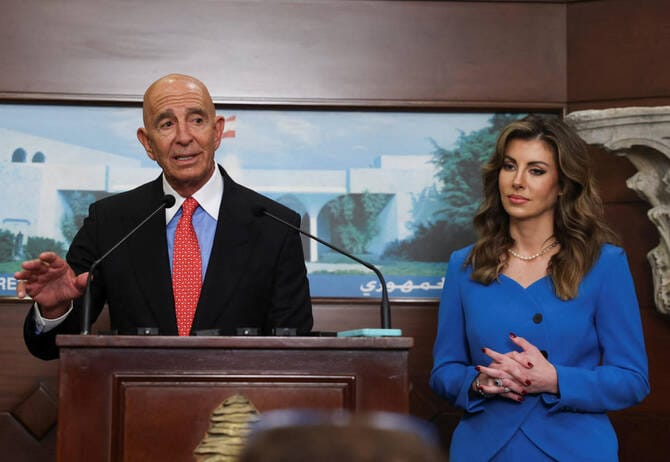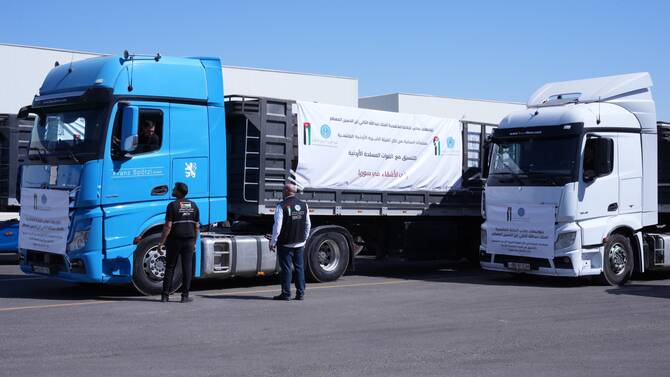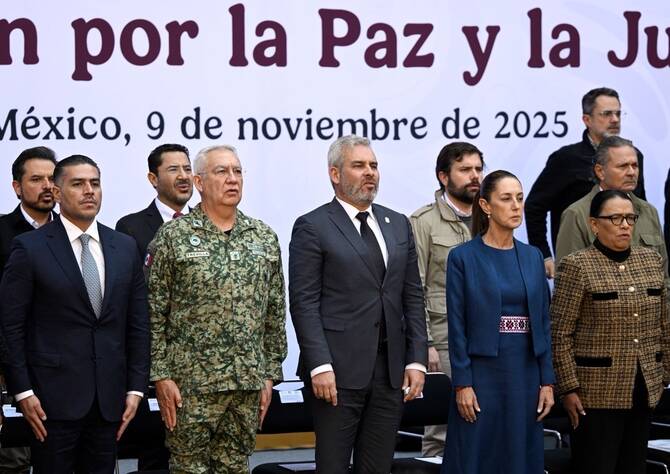Lebanon will present a plan on Sunday aimed at persuading Hezbollah to disarm, with Israel expected to submit a corresponding framework for its military withdrawal, top US envoy Thomas Barrack said on Tuesday.
Speaking after talks with President Joseph Aoun in Beirut, Barrack said the Lebanese proposal would not involve military coercion but would focus on efforts to encourage Hezbollah to surrender its weapons — including addressing the economic impact on fighters funded by Iran.
“The Lebanese army and government are not talking about going to war. They are talking about how to convince Hezbollah to give up those arms,” Barrack said.
A move this month by the Lebanese cabinet to task the army with drawing up a plan to establish a state monopoly on arms has outraged heavily armed Hezbollah, which says such calls only serve Israel.
Israel signalled on Monday it would scale back its military presence in southern Lebanon if Lebanon’s armed forces took action to disarm the Iran-backed Shiite militant group.
Barrack, who met Israeli Prime Minister Benjamin Netanyahu on Sunday, described that development as “historic.”
“What Israel has now said is: we don’t want to occupy Lebanon. We’re happy to withdraw from Lebanon, and we will meet those withdrawal expectations with our plan as soon as we see what is the plan to actually disarm Hezbollah,” he said.
Lebanese Prime Minister Nawaf Salam, after meeting the US delegation, said Lebanon had embarked on an irreversible path to place all weapons under state control, with the army due to present a comprehensive plan by next week.
Hezbollah chief Naim Qassem, in a recorded speech aired on Monday, criticized the government’s decision to disarm the group and urged officials to reverse it, saying pulling back “would be a virtue.”
While no formal proposals have been exchanged, Barrack said verbal commitments from both sides suggested a narrowing path toward implementation.
Economic consideration
Hezbollah was significantly weakened in last year’s war with Israel, which killed many of its top commanders and fighters. A US-brokered ceasefire ending the conflict obliges the Lebanese state to disarm all non-state armed groups.
Israel, meanwhile, has held on to positions inside Lebanon and its military has continued to carry out periodic air strikes it says target Hezbollah militants and weapons.
Qassem rejected a step-by-step framework under which an Israeli withdrawal and Hezbollah disarmament would proceed in parallel.
Qassem said Hezbollah would not discuss a national defense strategy until Israel fully implemented the ceasefire agreement signed on November 27.
“Let them implement the (ceasefire) agreement ... then after that we will discuss the defense strategy,” Qassem said.
Barrack stressed that any disarmament initiative must address the economic impact on tens of thousands of Hezbollah fighters and their families, many of whom rely on Iranian funding.
“If we’re asking a portion of the Lebanese community to give up their livelihood — because when we say disarm Hezbollah, we’re talking about 40,000 people being paid by Iran — you can’t just take their weapons and say, ‘Good luck, go plant olive trees’. We have to help them.”
He said Gulf states, including Qatar and Saudi Arabia, were prepared to support Lebanon’s economy — particularly in the south, which is Hezbollah’s stronghold — as part of an initiative to provide alternatives to Hezbollah’s payroll system.
Barrack said discussions were under way to build an “economic forum” backed by the Gulf, the US, and Lebanese authorities that would offer sustainable livelihoods “not determined by whether Iran wants it or not.”





